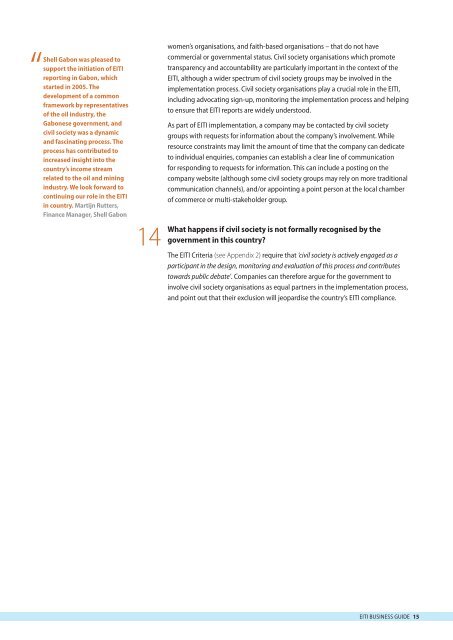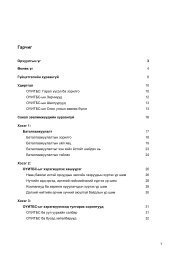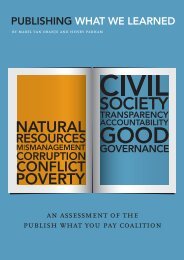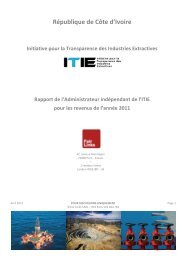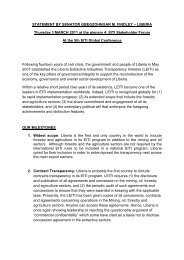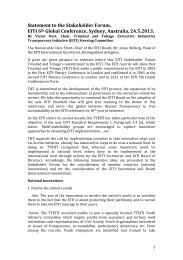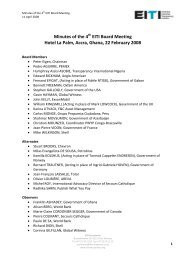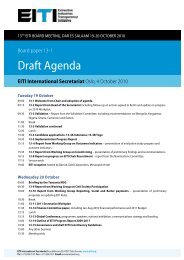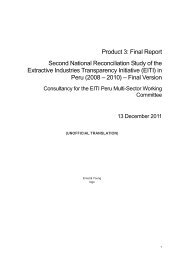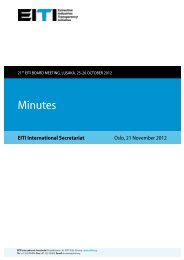EITI Business Guide
EITI Business Guide
EITI Business Guide
You also want an ePaper? Increase the reach of your titles
YUMPU automatically turns print PDFs into web optimized ePapers that Google loves.
“<br />
Shell Gabon was pleased to<br />
support the initiation of <strong>EITI</strong><br />
reporting in Gabon, which<br />
started in 2005. The<br />
development of a common<br />
framework by representatives<br />
of the oil industry, the<br />
Gabonese government, and<br />
civil society was a dynamic<br />
and fascinating process. The<br />
process has contributed to<br />
increased insight into the<br />
country’s income stream<br />
related to the oil and mining<br />
industry. We look forward to<br />
continuing our role in the <strong>EITI</strong><br />
in country. Martijn Rutters,<br />
Finance Manager, Shell Gabon<br />
14<br />
women’s organisations, and faith-based organisations – that do not have<br />
commercial or governmental status. civil society organisations which promote<br />
transparency and accountability are particularly important in the context of the<br />
<strong>EITI</strong>, although a wider spectrum of civil society groups may be involved in the<br />
implementation process. civil society organisations play a crucial role in the <strong>EITI</strong>,<br />
including advocating sign-up, monitoring the implementation process and helping<br />
to ensure that <strong>EITI</strong> reports are widely understood.<br />
as part of <strong>EITI</strong> implementation, a company may be contacted by civil society<br />
groups with requests for information about the company’s involvement. While<br />
resource constraints may limit the amount of time that the company can dedicate<br />
to individual enquiries, companies can establish a clear line of communication<br />
for responding to requests for information. This can include a posting on the<br />
company website (although some civil society groups may rely on more traditional<br />
communication channels), and/or appointing a point person at the local chamber<br />
of commerce or multi-stakeholder group.<br />
What happens if civil society is not formally recognised by the<br />
government in this country?<br />
The <strong>EITI</strong> criteria (see Appendix 2) require that ‘civil society is actively engaged as a<br />
participant in the design, monitoring and evaluation of this process and contributes<br />
towards public debate’. companies can therefore argue for the government to<br />
involve civil society organisations as equal partners in the implementation process,<br />
and point out that their exclusion will jeopardise the country’s <strong>EITI</strong> compliance.<br />
<strong>EITI</strong> BusInEss GuIdE 15


